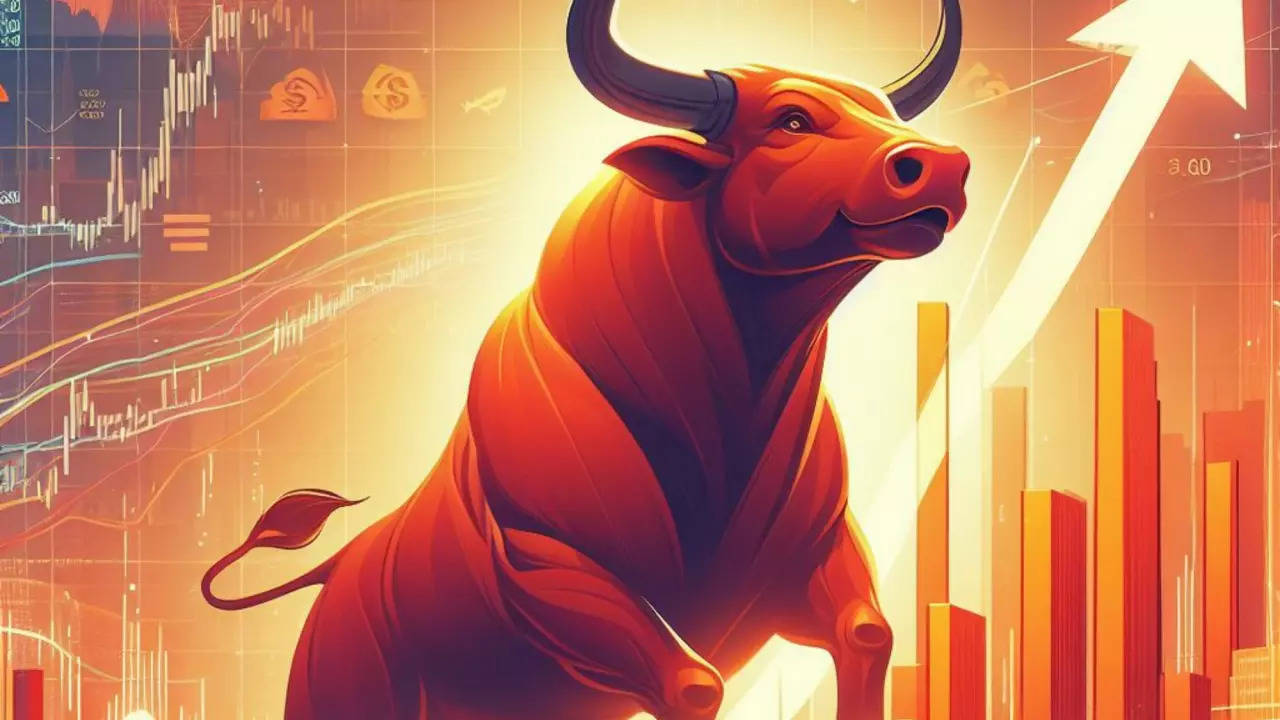[ad_1]
When 2023 began, the most talked about consensus trade among the global investors was China as it was set to reopen for normal business after three years of lockdowns to contain the Covid spread. Investors also baked in economic reforms by the government to compensate for clampdown on businesses, including the spectacularly restrictive curbs on Jack Ma, the founder of Alibaba.
Come 2024, India is the favourite of investors with possibly the highest growth rate and substantial corporate earnings among the large emerging markets. That is pretty much the best a market can get.
India’s nominal growth is estimated to be 11.6 percent this year, up from 9.2 last year, making it the third consecutive year of strongest growth in Asia, said Morgan Stanley economists. India’s contribution to Asian and global growth will rise to 30%, up from 28%. It forecasts that real GDP growth will average 6.3% until 2032. While on the ground economic activity is reassuring, what’s on the minds of investors?
“Investors are mostly constructive but are focused on the sustainability of growth as higher compounded annual growth will be needed to justify the valuations and new investments,” said Chetan Ahya, economist at Morgan Stanley.
While the macro picture can be the starting point, for equity investors it is the corporate earnings and the valuation of the broader market and of individual stocks that are deciding factors.
The corporate and the banking sector balance sheet are the strongest in more than a decade, with low bad loans and the least leverage. Indian companies turned conservative with loans as many conglomerates lost businesses due to high debt under the revamped bad-loans cleanup laws.
That translated into strong corporate earnings that pulled stock indices to record highs. Nifty 50 earnings is estimated to grow 15.7 percent next fiscal to Rs 1,076.
But what are foreign portfolio investors, which the market terms as smart money, doing?
They have sold shares worth about Rs. 35,000 crores so far. As far as the smarter private equity funds, their sales are estimated to be around $22 billion last year. Just because FIIs are reducing exposure doesn’t mean the market could slide. Mutual funds came to the rescue in 2022 when that happened. They are raking it in with the Systematic Investment Plans alone pulling in Rs. 1.8 lakh crores in 2023.
Thanks to the domestic and global flows on a positive outlook, India outperformed most Emerging Markets in 2023 with the Nifty gaining about 20 percent. But that has also pushed it to an expensive territory.
While the Nasdaq is the most expensive at 30 times, Nifty trails it at 20 times while the MSCI EM is at 12. When it comes to the gauge that global investors follow, India tops with MSCI India at 22, US at 20 times, Indonesia at 14 and China 9.
When investment choices are relative, stocks just don’t compete with other nation’s equities, but also with fixed income yields.
“Our favourite chart to determine if market valuations are fair is the gap between bond yields and earnings yields,” said Kunal Vora at BNP Paribas Securities. “Historically, forward returns have been weak when bond yields have exceeded earnings yields by 2 percentage points.”
That has happened in 2010, 2014 and 2018 with 2022 being an exception with high returns despite an elevated gap. The recent rally in the market has led to the gap going to 2.1%, which makes equities relatively expensive.
Stretched valuations may be justified because of the comfort in earnings and the growth prospects. Also, India has an established legal system, policy consistency and rule of law unlike China.
“Valuations in India are higher than the levels seen overseas, which can be partially justified by India’s strong GDP and earnings growth along with its long-term earnings potential,” said Vora of BNP.
For value investors, it is the potential returns – the discount to intrinsic value – that determine the allocation. Benjamin Graham termed it the `margin of safety’ that also limits the downside.
“The relationship between price and value holds the ultimate key to investment success,” said Howard Marks, founder, Oaktree Capital Management. “Buying below value is the most dependable route to profit. Paying above rarely works well.”
The Indian economy will grow, earnings are poised to rise, and investors are set to reap the fruits in the long term, but the margin of safety may be lesser than what it was a year ago.
[ad_2]
Source link
